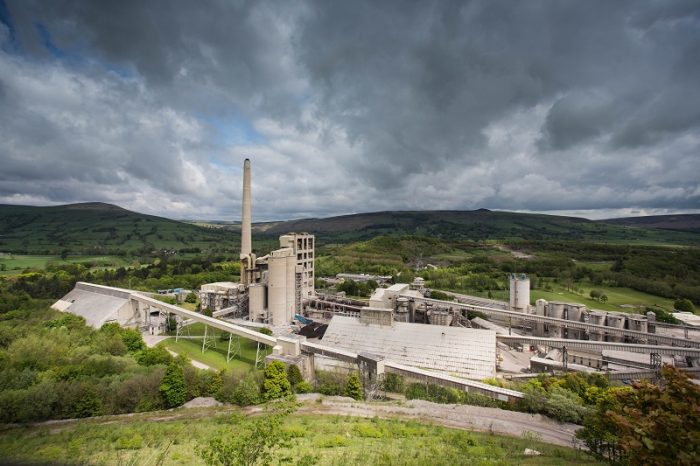
In the UK, CEMI Portland cement is the most commonly used cementitious material in the ready-mixed concrete sector. Typically, it’s combined with supplementary cementitious materials, e.g., GGBS, to allow concrete mixes to be produced with lower embodied CO2.
CEMII/A-L is a type of cement that incorporates between 6-20% limestone, reducing the portion of clinker and subsequently the embodied CO2. It can also be used to produce blends with supplementary cementitious materials, which further reduces the embodied CO2.
Breedon’s Hope cement works had been producing CEMII/AL for bagged products but had no capacity to store or supply in bulk. As part of their commitment to decarbonisation in 2021 they began increasing the production of CEMII/AL, displacing the higher carbon CEMI cement. They began supplying this in bulk to their ready-mixed concrete plants and depots utilising their rail network.
Many traditional UK concrete plants are only able to stock 2 or 3 cementitious materials, with CEMI and GGBS being the common configuration. However, by mid-year, over 20 Breedon concrete plants were successfully stocking and selling CEMII/A-L concretes, with some sites converting over 50% of their supply.
To further increase the supply of lower carbon mixes, Breedon are making a multimillion-pound investment to increase the number of silos and capacity across their ready-mix portfolio.
In terms of impact, switching from CEMI production to CEMII/A-L at their cement works, would result in significant carbon reduction per tonne produced from the cement plant. Increasing the use of SCMs in conjunction with CEMII/A-L to create new ternary cements will enable even further embodied CO2 reductions. Ultimately, if all the cement produced for Breedon’s concrete plants was CEMII/A-L, it would result in an annual reduction of CO2 from cement production, equivalent to over 20 million miles driven by our cement tankers.